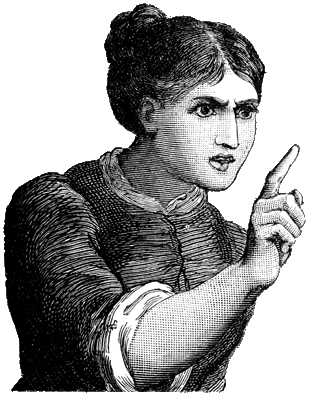“Because you are a teacher, you should know that children are not autistic. Children HAVE autism. The behaviors are autistic. How would you refer to a child with cancer? Surely, not canceristic.”
Dear Reader,
I read your comment and set it aside. I waited because there isn’t a correct way to respond to this. I can’t win no matter what my response is. Clearly, you are strongly of the opinion that people should place descriptions of children AFTER the noun “child”, presumably because you want to stress “child” rather than “autism”. I realize that you do not want to see children defined by a condition. I get that. I do. But I would be lying to you if I told you that I agree.
Just a few days ago, my friend Jenny, also an autism mom, made the comment that she wished people would stop using the term “children who have autism”. She thought it sounded like some dread communicable disease. You know, like “I have crabs” or something equally disconcerting. At the time, I remember thinking how funny that was – precisely because I have heard impassioned arguments to the contrary! I remember thinking that, no matter what one says these days, you offend somebody. And, clearly, I have offended you.
Abraham Lincoln once made this dry criticism of a writer: “He can compress the most words into the smallest ideas of any man I ever met.” The English teacher in me loathes wordiness. It obscures meaning, as one is too busy shoveling crap to get to the main idea. I believe that political correctness has forced us all to spend a great deal of time adding more and more words into our sentences to describe… the obvious. I don’t use vulgar slurs. And I dislike hurtfulness in all its forms. But I believe that we can rearrange the adjectives and nouns to our heart’s content – and not change a thing except to make it immensely difficult to get out a single sentence without pausing repeatedly to shift around all the words.
Our society is already quite comfortable referring to certain groups of people via description. The deaf community. Senior Citizens. Diabetics. Brunettes. Gifted children. You don’t hear many screams of outrage demanding those persons be called “groups of people who are deaf”, “Americans of advanced age”, “people with insulin resistance”, “women with brown hair”, or “kids who are much smarter than their teachers”. You simply don’t. I can rearrange all of the words into new prepositional phrases and -you know what? It won’t change a thing. Even in the autism community, people with an Asperger’s diagnosis affectionately refer to each other and themselves as “Aspies”. Search the internet, and you will find dozens of websites with funny t-shirts designed for autistics and aspies who want to proudly and amusingly claim their unique status.
For many months now, I have been likening observations of my son to having three sets of eyeglasses. We analyze his behaviors in terms of him being two years old, being autistic, and also simply being Callum. But the frustrating part is that I cannot classify any of his behaviors using just one pair of glasses. For he is all of those things. Remove one, and he ceases to be the little boy that I love. He is an autistic two-year-old boy named Callum. Converting the adjective into a prepositional phrase will not change anyone’s perception of him. Nor do I believe the argument that it will change his perception of himself.
The thing is, I am certain that there will be folks who reply in to this, passionately disagreeing. There will also be people replying in, passionately agreeing. Yet nothing conclusive will be determined. People might fight about it and spew insults. And some will want to sing “Kum Bah Yah”. But neither side will emerge the victor.
And all that drama would be a shame. Because, I promise you, promise you, my feelings for my autistic child are every bit as loving, protective, and passionate in my belief and faith in him as yours would be for your child with autism or some other reader’s child who has autism or her friend’s child battling autism. To me, and others who agree with me, they are the same child – regardless of the part of speech.
That’s why I didn’t quite know what to say to you. Because I won’t win. People will be upset. And, we have enough controversy in our community. We have divided camps over DSM classifications, vaccines, biomedical approaches to autism treatment, genetic research, etc. etc. I think it isn’t particularly helpful to any of us to insinuate that some of us are insensitive simply because we prefer the adjective lead the noun. Nor do I think that people who see it differently are idiots. I think it is a preference.
But it hurts me to think that folks with a different opinion would accuse me of insulting children. For I love each and every autistic child that I teach. And I love my child with autism. I don’t want to upset anyone, but I will inevitably upset someone.
So, that’s the best response I have to you. And it still isn’t satisfying to either one of us. But I want you to know that I mean no harm. And I wish you all the best.






